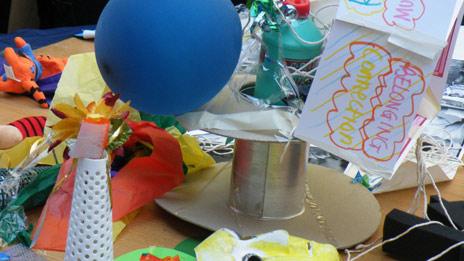Should we pay more attention to our army of unpaid volunteers?
- Published
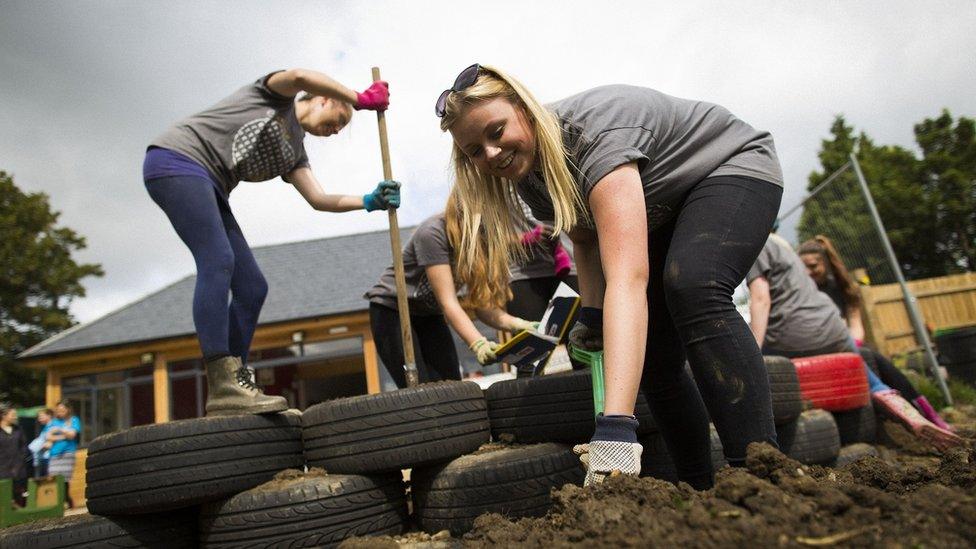
Thousands of young people volunteer every year in the UK helping them to gain skills that are useful later
When it comes to giving out national gongs, titles and awards, the UK's unpaid volunteers stand out as a priceless, heart-warming force for good. But while we're always ready to recognise their positive contribution, should we be making more of an effort to measure and calculate the contribution they make?
In the UK an estimated 15 million people volunteer on a regular basis. That number reaches as high as 30 million when you include those who give just small amounts of help on a sporadic basis like helping a neighbour. And the time given by this army of altruists is the equivalent of the working hours of people employed in manufacturing across the whole of the UK.
The Bank of England estimates that the contribution volunteering makes to the country's economy is at least £50bn ($75bn) and could be as much as £100bn. This is close to the annual cost of defending the nation or educating our children.
But, it begs a question, why don't we properly measure these efforts through that number we hear so often about, GDP? This a lost opportunity says Gus O'Donnell, former Head of the Civil Service.
"The statisticians have now put illegal drug trading and prostitution into GDP and yet volunteering isn't there. It's unmeasured and therefore unvalued and it has a much, much bigger impact on people's wellbeing than they realise," he says.
London's 2012 Olympics brought volunteering into the public consciousness, and many who signed up decided to carry on once the athletes had packed up and gone home.
One such volunteer is Ann Davis, a retired deputy head teacher. She's carried on her volunteering through the Join In Trust, a charity created to harness the potential of that 70,000 strong volunteer army.
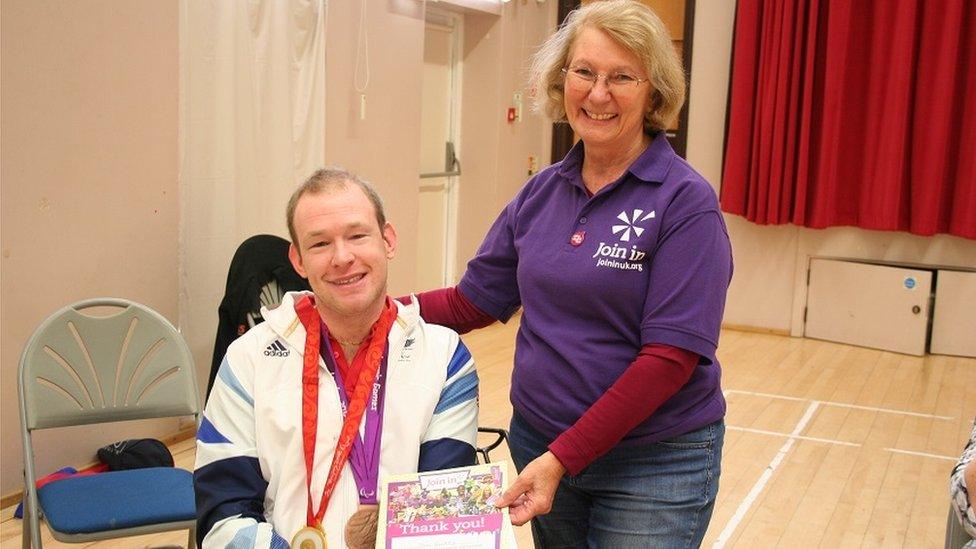
Ann Davis brought paralympian, Dan Bentley, to meet members of the MS society where she volunteers
Every Monday morning she helps at a multiple sclerosis (MS) support group in Chelmsford, Essex. She even persuaded the paralympic gold medallist Dan Bentley to come and teach the group how to play boccia, a kind of indoor bowls.
"The MS society has a core team of paid staff but everything that's happening out here at grass roots is done by volunteers. So, if we didn't do this, it wouldn't be there for these people."
Back-up system
While the much vaunted Big Society, David Cameron's pet project under the coalition government, was quietly sidelined, the current government has continued to carry a torch for volunteering. Legislation has been suggested that would give every worker, in companies over a certain size, the right to have three days off a year to volunteer.
But, not everyone thinks encouraging the unpaid is a good idea. One of those detractors is philosopher and former New Zealand politician, Jamie Whyte.
"The voluntary system isn't a good system. It's a back up system. It's what you want when the main system hasn't quite worked for various reasons. It shouldn't be promoted. It should be something we think of as - it's a shame we need it, but we do."
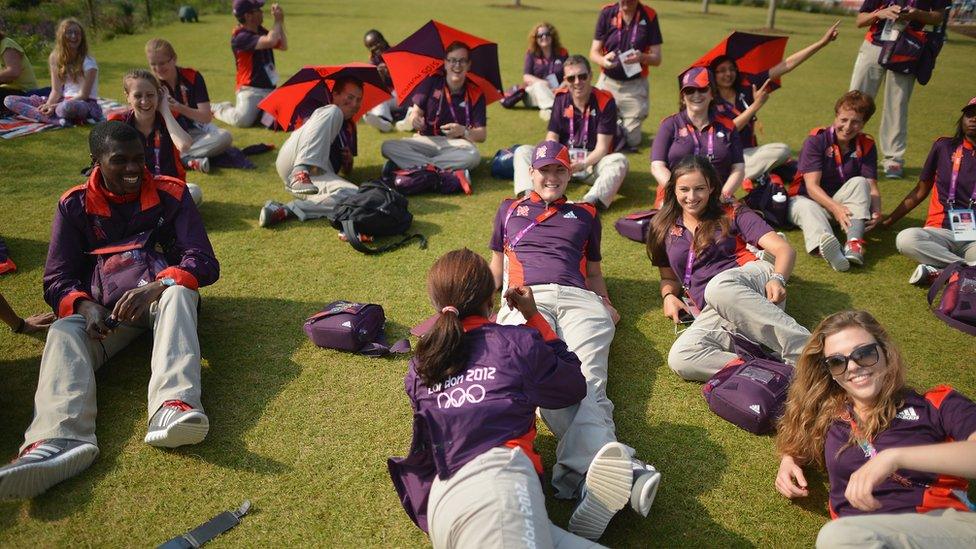
London's 2012 Olympics made volunteering fashionable and 70,000 people signed up
Jamie Whyte also worries that there are complications in organising all this unpaid labour.
"I don't know if you have ever managed volunteers but it's very hard to push them around. It's hard to be tough on them. There's an unprofessionalism often and a lot of waste and a lot of chaos.
"And, if something can be done in the normal way, through people who are being paid, who are professional who are under the normal disciplines which come with all of that, things tend to go a lot better," he says.
Jumping up
But volunteering doesn't just benefit those on the receiving end. Volunteers themselves get a lot out of it too. Like Rosie Willis who is one of 1700 volunteers at Kings College Hospital Trust. These volunteers interact with patients, having conversations that the nurses no longer time for. For Rosie, who uses a wheelchair due to the effects of cerebral palsy, being accepted on to the volunteering programme was a life changing experience.
"I got on the recruitment day and I was absolutely terrified. I kept thinking, they're not going to want me," she says.
"I had my hair done, just in case, because it felt really, really important. And I got home and there was an email waiting for me to say that I'd been accepted.
"So I got my husband literally to jump up and down in our bedroom."
Rosie believes that for people like her, suffering from long term health conditions, volunteering, like work can make a huge difference to well-being.
Paid or unpaid?
But critics weigh in that using unpaid workers can sometimes be a used as a cover for cuts in an age of austerity.
"A number of people do believe that volunteers are just replacing workers and that cannot be good for society," says Dave Prentis general secretary of the trade union Unison.
"Where it's become an issue has really been, over the past few years, where we've seen with the austerity agenda nearly 500,000 jobs go in our public services. The worry is that, as the jobs go and people that have been in trained work go, they are replaced by volunteers who do not know the job."
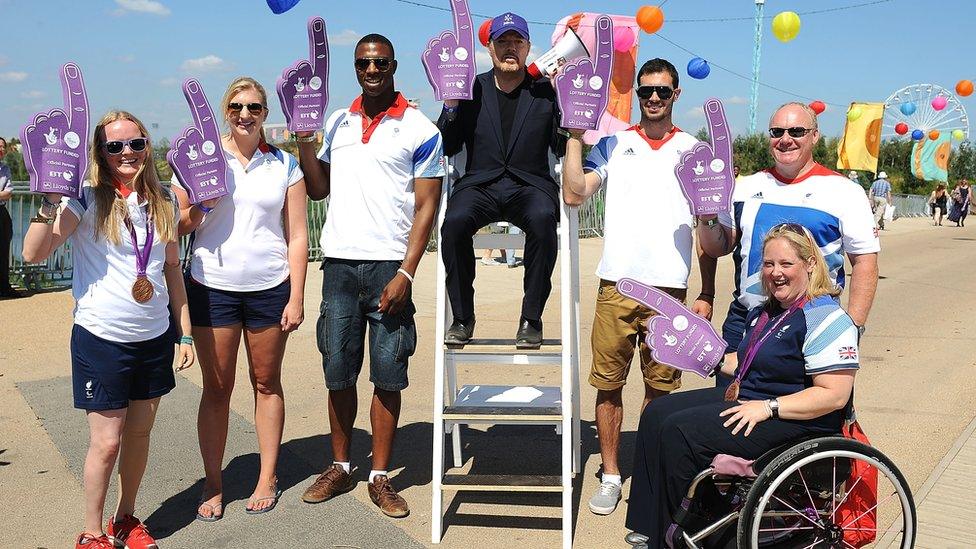
Eddie Izzard is the patron of the Join In Trust, the charity which harnessed the efforts of the 2012 Olympic games makers
On the other hand for some of those volunteers, especially the young, the experience will provide a crucial first stepping stone into eventual paid work.
The National Citizen Service (NCS) allows 16-year-olds across the country to take part over four weeks during the summer. By the end of 2015 over 200,000 teenagers will have completed the course, which combines outdoor activities with volunteering projects. Michael Lynas, NCS chief executive, hopes it will make volunteering a lifelong habit. But it also goes a long way in changing the image of teenagers in society today.
"Increasingly, in a service economy, how those young people are going to be able to interact with really diverse customers that are walking in off the street, how they are going to be able to make sure they turn up on time and stay for a full shift, all those things that young people learn as they are volunteering, are going to be really important for the economy of tomorrow."
You can hear the radio programme Volunteer Nation on BBC Radio 4 at 20.00 Tuesday 15 Dec and again at 17.00 on Sunday 20 Dec, presented by Andy Haldane, chief economist of the Bank of England.
- Published23 October 2015
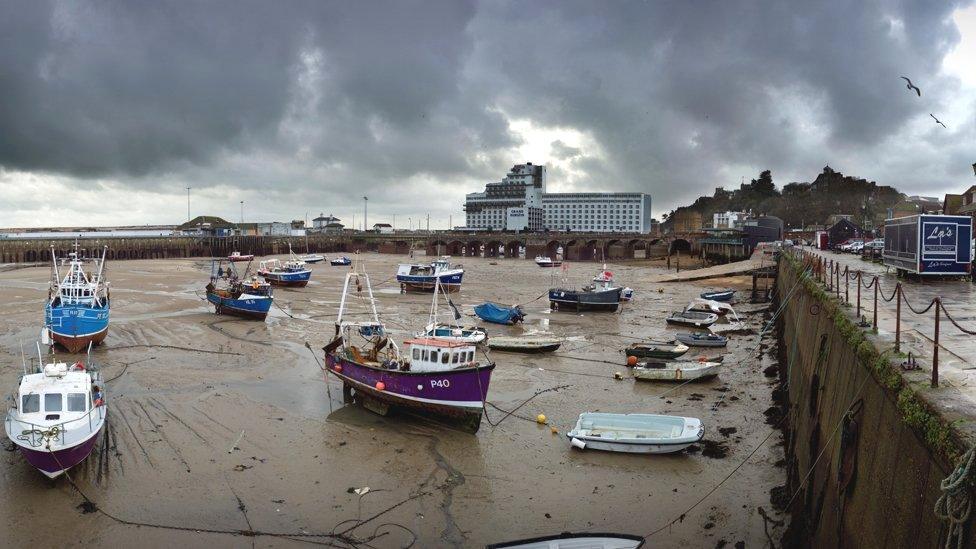
- Published14 May 2014
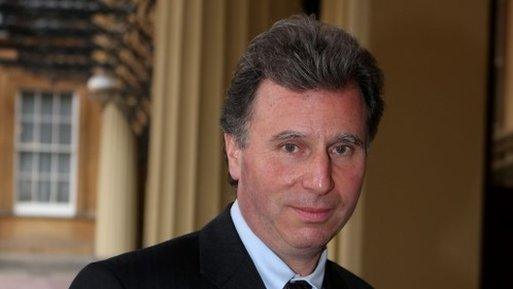
- Published7 March 2012
